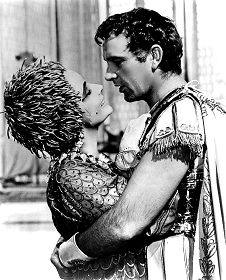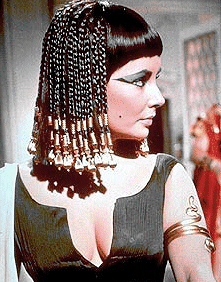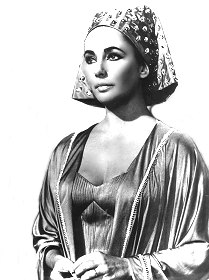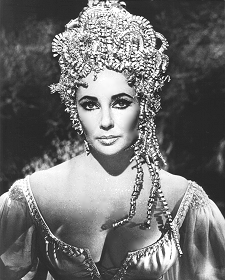|
|
In
his book ‘Rich: The Life of Richard Burton,’ Melvyn Bragg writes, “The
film finally had three and a half hours chopped out of it – most of it
containing Burton’s best scenes which are somewhere in a 20th Century
Fox vault. According to Joe Mankeiwicz, the writer-director, they show
Burton giving a remarkable performance. So what he came originally and
finally to prove – that the great intellectual epic was possible – landed
on the cutting room floor on the West Coast.”
The
reviews for the film were the worst reviews Elizabeth Taylor would ever
experience in her film career, with comments such as: “Overweight, overbosomed,
over-paid and undertalented, she set the acting profession back a decade”
and “Miss Taylor is monotony in a slit skirt.” In the meantime, other
filmmakers were to see the potential fortune to be made out of the publicity
which surrounded the couple. Anton de Grunwald had been planning to film
a script by Terence Rattigan called ‘The VIPs’, which was to star Sophia
Loren and Burton. He quickly offered Liz a million dollars to take Loren’s
place opposite Richard and paid him half a million. Together with a percentage
deal, the pair were to make $3m out of ‘The VIPs’ which opened the week
after ‘Cleopatra’ and cleaned up. Strangely enough, the film was based
on another scandalous film affair. Rattigan had written it after hearing
of a moment in Vivien Leigh’s life when she left Laurence Olivier and
was attempting to run away with Peter Finch, only to find herself marooned
for several hours at the airport because of fog. Liz and Burton were to
divorce their respective spouses and were married in Monreal in 1964.

|










